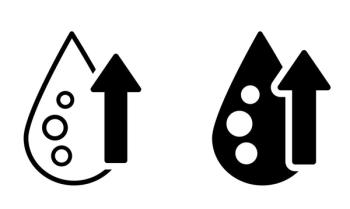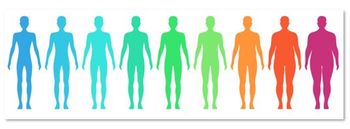
Apolipoprotein Genotypes Tied to Heart Risk, But Screening Called Unwarranted
CAMBRIDGE, England -- Apolipoprotein E (apoE) genotypes appear to have a linear relationship with cholesterol levels and heart disease risk, researchers found.
CAMBRIDGE, England, Sept. 19 -- Apolipoprotein E (apoE) genotypes appear to have a linear relationship with cholesterol levels and heart disease risk, researchers found.
Carriers of the ?2 genotype had a 20% reduced risk of coronary disease compared with the most common ?3/?3 genotype, whereas ?4 carriers had slightly increased risk, according to a review article in the Sept. 19 issue of the Journal of the American Medical Association.
However, "the magnitude of this relative risk is insufficiently strong to justify population-wide screening for apoE genotypes," wrote John Danesh, Ph.D., of Cambridge University, and colleagues.
Previous reviews had primarily included only small studies and were unable to show a reduced risk with the ?2 genotype, they said.
The researchers did a literature search and contacted investigators for additional, updated, and unreported data. Prespecified principal analyses were based only on large studies.
Dr. Danesh's group found 82 studies on lipid outcomes in a total of 86,067 healthy volunteers. Of these, six were expanded or updated and 32 had not previously reported on lipid markers. The principal analyses included 22 studies with at least 1,000 healthy participants.
In the pooled studies, ?3/?3 was the most common genotype (frequency 0.623) followed by ?3/?4 (0.213) and ?2/?3 (0.116). Frequencies were generally similar across gender and age.
Mean LDL cholesterol was about 31% lower for people with the ?2/?2 genotype than for those with the ?4/?4 genotype (?1.14 mmol/L), "a difference comparable with that produced by 'statin' medication."
Total cholesterol was likewise about 14% lower for those with the ?2/?2 versus ?4/?4 genotype (?0.81 mmol/L).
Associations with HDL-C levels were only "weakly inverse," the investigators said. The most extreme difference was about a 5% increase in HDL for ?2/?2 compared with ?4/?4 (0.07 mmol/L).
Triglycerides showed a nonlinear trend with levels about 21% higher in the ?2/?2 genotype group than in the ?3/?3 reference group (0.34 mmol/L), a relationship "about two times weaker than previously reported," they said.
Comparing the two more common genotypes, ?2/?3 and ?3/?4, the findings were:
- Total cholesterol was about 8% lower with ?2/?3 (?0.43 mmol/L).
- LDL cholesterol was about 14% lower with ?2/?3 (?0.52 mmol/L).
- HDL cholesterol was about 5% higher with ?2/?3 (0.07 mmol/L).
The investigators also found 121 studies on myocardial infarction and angiographic coronary stenosis outcomes for a total of 37,850 cases and 82,727 controls. Seven studies were expanded or updated by data obtained from the principle investigators and 18 had been unreported.
In the 17 studies with at least 500 cases, ?2 carriers had a 20% lower risk of coronary disease (odds ratio 0.80, 95% CI 0.70 to 0.90) and ?4 carriers had 6% higher risk (OR 1.06, 95% CI 0.99 to 1.13) compared with those who had only ?3 alleles.
The heart risk increased linearly from ?2/?2 through ?4/?4 genotypes as with lipid outcomes from an odds ratio of 0.83 for ?2/?2 (95% CI 0.55 to 1.25) to 1.22 for ?4/?4 (95% CI 1.08 to 1.38).
Again, though, the researchers cautioned that the benefit of genetic screening for ?2 carriers would likely have a small real-world effect.
"Given that the prevalence of the ?2 allele is only about 7% in Western populations," they wrote, "even if the 20% lower coronary risk associated with it were to be entirely causal, it would still explain only a few percent of coronary disease cases in Western populations."
The findings did not support a stronger effect of apoE genotype in women or with other characteristics as has been proposed, they said.
Furthermore, there was "strong evidence of selective publication in previous estimates based on smaller studies," the investigators said.
"This is a serious concern given that apoE genotypes and coronary risk had hitherto been considered among the few quantitatively secure associations in cardiovascular disease genetics," they added.
Newsletter
Enhance your clinical practice with the Patient Care newsletter, offering the latest evidence-based guidelines, diagnostic insights, and treatment strategies for primary care physicians.

































































































































